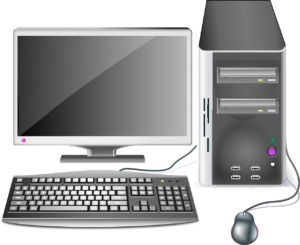Best Way to Dispose of Old Computers
Got an old computer gathering dust in your closet? You’re not alone. Millions of outdated devices are left unused every year, and many end up in landfills where they can cause significant harm to the environment. But before you toss that relic aside or shove it into a drawer never to be seen again, let’s dive into why properly disposing of old computers is crucial for both you and the planet. Whether you’re looking to declutter your space or make some extra cash, understanding how to dispose of old computers responsibly can lead you down a path that’s beneficial for everyone involved. Let’s explore the best options available and ensure that your tech does more than just sit idle!
The Importance of Properly Disposing Old Computers
Improper disposal of old computers can lead to various problems. Electronic waste, or e-waste, contains hazardous materials like lead and mercury. When these substances seep into the soil and water supply, they pose serious health risks to both humans and wildlife.
Moreover, tossing your computer in the trash contributes to a growing global crisis. The sheer volume of e-waste is staggering—millions of tons each year end up in landfills. This not only clogs our waste management systems but also accelerates environmental degradation.
By properly disposing of old computers, you’re taking an important step toward sustainability. It helps conserve natural resources by encouraging recycling and repurposing valuable components.
Responsible disposal methods also promote ethical consumer behavior. More people are becoming aware that their choices impact not just their immediate surroundings but the planet as a whole. Taking action shows commitment to creating a cleaner environment for future generations.
The Environmental Impact of E-Waste
E-waste, or electronic waste, poses a significant threat to our environment. When old computers end up in landfills, they release toxic substances like lead and mercury into the soil and water supply. These chemicals can seep into ecosystems, harming wildlife and contaminating food sources.
Moreover, e-waste is one of the fastest-growing waste streams globally. With rapid technological advancements, millions of devices are discarded each year. This surge creates a pressing need for responsible disposal methods.
Improper handling not only affects local environments but also contributes to global pollution issues. The carbon footprint associated with manufacturing new electronics compounds the problem further.
By understanding these impacts, we can make more informed choices about how to dispose of our old computers responsibly. Each small step towards sustainable practices makes a difference in protecting our planet’s future.
Options for Disposing Old Computers
When it comes to disposing of old computers, you have several options at your disposal. Each choice has its own benefits and considerations.
One popular route is recycling. Many electronic waste facilities specialize in dismantling computers safely. They recover valuable materials while ensuring harmful components are handled correctly.
Another option is donation. If your computer still functions well, consider giving it to schools or non-profits that can benefit from technology but lack the funds for new equipment.
Selling online can also be rewarding. Websites like eBay or local marketplaces allow you to reach potential buyers who may appreciate a second-hand device.
Manufacturers often offer take-back programs. Check with the brand of your computer; they might provide an easy way to return old devices responsibly while sometimes offering discounts on new purchases too.
Donating or Selling Old Computers
Donating or selling your old computer can breathe new life into devices that still hold value. Many organizations, schools, and local charities welcome functional computers. Your donation could help someone gain access to technology they otherwise can’t afford.
If you’re considering selling, online marketplaces offer a straightforward way to connect with potential buyers. Listing your device on platforms like eBay or Facebook Marketplace allows you to set a fair price while reaching  interested consumers.
interested consumers.
Before donating or selling, make sure the device is wiped clean of personal data. This will protect your privacy and ensure security for future users.
Engaging in this process not only benefits others but also contributes positively to reducing electronic waste in landfills. It’s a win-win situation that promotes sustainability while putting unused technology back into circulation.
Recycling Old Computers
Recycling old computers is a responsible choice for anyone looking to dispose of electronic waste. Many components inside a computer can be reused or repurposed, reducing the strain on our planet.
The process usually involves taking the device apart and sorting its parts—metals, plastics, and circuit boards are separated. This ensures that valuable materials like gold and copper can be extracted safely.
Specialized recycling facilities handle this task with care. They follow strict guidelines to minimize environmental impact while maximizing resource recovery.
Before you send your computer off for recycling, check if the facility follows eco-friendly practices. Look for certifications that guarantee they adhere to best practices in e-waste management.
By choosing recycling over dumping, you’re contributing to a circular economy where resources are valued and reused rather than wasted. It’s an excellent way to support sustainability efforts in your community.
Data Security When Disposing of Old Computers
When it comes to disposing of old computers, data security should be a top priority. Your device holds sensitive information that can easily fall into the wrong hands if not handled properly.
Before parting with your computer, ensure you wipe all data thoroughly. Utilizing software tools designed for secure erasure is essential. These programs overwrite existing files multiple times, making recovery nearly impossible.
Physical destruction is another option for added security. Removing and physically destroying the hard drive ensures that no personal information remains accessible.
Always remember to back up important files before beginning this process. This way, you won’t lose valuable documents while securing your privacy.
Stay vigilant about how and where you dispose of your devices. Partnering with certified e-waste recyclers or donation centers can offer peace of mind regarding both environmental impact and data protection.
Conclusion
Disposing of old computers is not just a matter of clearing space. It’s about making responsible choices that reflect our commitment to the environment and data security. With e-waste rising at alarming rates, understanding how to dispose of old computers properly is essential.
You have several options available, from donating or selling functional devices to recycling those that are no longer usable. Each choice has its benefits and ensures your tech doesn’t contribute to environmental harm.
Moreover, protecting your sensitive data should always be a priority when you’re parting ways with an old computer. Whether you choose to recycle or donate, taking steps for secure data deletion protects your privacy.
Taking the time to consider these aspects will help you make informed decisions regarding your outdated electronics while contributing positively to the planet’s health and safety.



